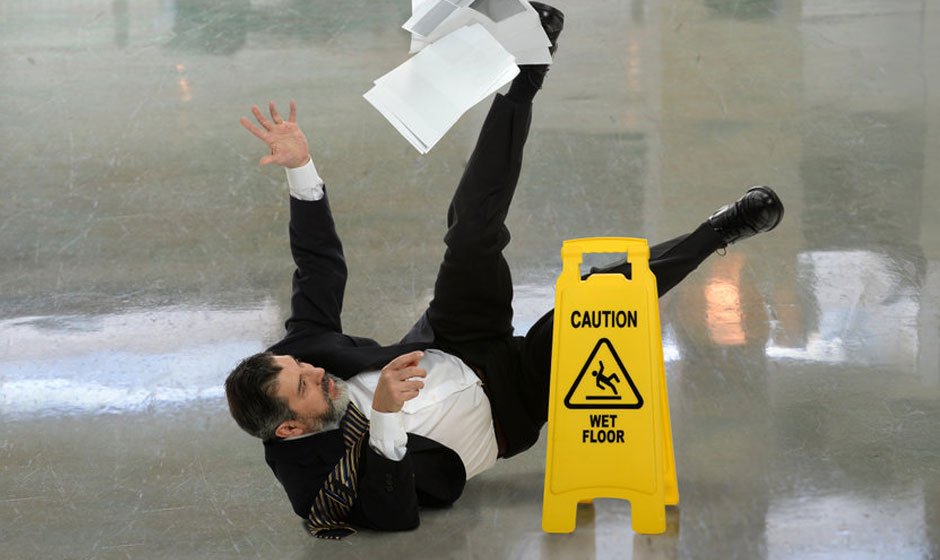Slip, Trip and Fall Claims in the UK: A Comprehensive Guide

Navigating the complex world of personal injury claims can be daunting, especially when dealing with the aftermath of a painful slip, trip, or fall. In the UK, these incidents are not uncommon, and the legal framework is in place to protect individuals who suffer injuries due to negligence. This guide aims to provide clarity on the process and considerations when thinking about making a slip, trip, and fall claim in the UK.
Understanding the Basics of a Slip, Trip, and fall Claim
At the heart of every slip, trip, and fall claim is the principle of negligence. To have a successful claim, an individual must prove that their injury was a direct result of someone else’s negligence or failure to uphold their duty of care. This could be a business owner failing to signal a wet floor, a local council not repairing a broken pavement, or a landlord not maintaining common stairwells, among other scenarios.
The Process of Making a Claim
- Seek Medical Attention: Before anything else, ensure you get medical attention for your injuries. Not only is this crucial for your health, but medical records also serve as vital evidence in your claim.
- Gather Evidence: Collect as much information as possible from the scene. This could be photographs of where you fell, any potential hazards or defects, and any signage (or lack thereof). Witness statements can also be invaluable.
- Report the Incident: If your fall took place in a public venue, such as a shop or restaurant, ensure you report it to the staff and have it recorded in their accident book.
- Consult a Solicitor: Engage a solicitor who specializes in personal injury claims. They can provide expert advice on the merit of your case, potential compensation, and guide you through the legal process.
The Role of Compensation
Compensation in slip, trip, and fall claims is not just about remunerating pain and suffering. It also covers lost earnings, medical expenses, and any future costs or losses related to the injury. In essence, the compensation aims to return the injured party to the financial position they would have been in had the accident not occurred.
Claim Duration and Settlement
The duration of a claim can vary considerably based on its complexity. Straightforward cases where liability is clear might settle within a few months. However, more intricate cases, especially those with severe injuries or disputed liability, can take years.
It’s also worth noting that many claims are settled out of court. Insurance companies or parties at fault might offer a settlement amount to avoid lengthy court proceedings. It’s crucial to consult with your solicitor to determine whether such an offer is in your best interest.
Statistics on Slip, Trip and Fall Claims
To emphasize the prevalence of slip, trip, and fall incidents in the UK, let’s consider a data table highlighting the number of such claims and the total compensation awarded over recent years:
| Year | Number of Claims
(in thousands) |
Total Compensation Awarded (in £ millions) |
|
2019 |
31.2 |
280 |
|
2020 |
29.5 |
265 |
|
2021 |
30.4 |
272 |
| 2022 | 31.0 |
285 |
As evident from the data, slip, trip, and fall claims are a recurrent concern, and a substantial amount is awarded in compensation each year, underscoring the significant impact these incidents have on individuals and the broader community.
Selecting the Right Solicitor
Choosing a solicitor to represent you is one of the most critical decisions in the process. Ensure that your solicitor:
- Specialises in Personal Injury: They should have a track record of handling and winning slip, trip, and fall claims.
- Operates on a ‘No Win, No Fee’ Basis: Many solicitors offer this arrangement, ensuring you don’t incur legal fees unless you win your claim.
- Provides Clear Communication: You should be kept in the loop throughout the process, with the solicitor providing clear explanations and updates.
Conclusion
A slip, trip, or fall can have severe consequences on an individual’s health, finances, and overall quality of life. While navigating the legal landscape might seem intimidating, the UK’s framework is designed to protect victims and ensure they receive the compensation they deserve. By taking proactive steps immediately after the incident, gathering evidence, and consulting with a specialized solicitor, individuals can assert their rights and seek redress for the harm they’ve suffered.



